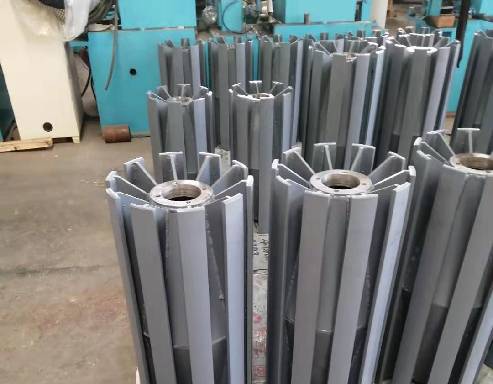 Afrikaans
Afrikaans  Albanian
Albanian  Amharic
Amharic  Arabic
Arabic  Armenian
Armenian  Azerbaijani
Azerbaijani  Basque
Basque  Belarusian
Belarusian  Bengali
Bengali  Bosnian
Bosnian  Bulgarian
Bulgarian  Catalan
Catalan  Cebuano
Cebuano  Corsican
Corsican  Croatian
Croatian  Czech
Czech  Danish
Danish  Dutch
Dutch  English
English  Esperanto
Esperanto  Estonian
Estonian  Finnish
Finnish  French
French  Frisian
Frisian  Galician
Galician  Georgian
Georgian  German
German  Greek
Greek  Gujarati
Gujarati  Haitian Creole
Haitian Creole  hausa
hausa  hawaiian
hawaiian  Hebrew
Hebrew  Hindi
Hindi  Miao
Miao  Hungarian
Hungarian  Icelandic
Icelandic  igbo
igbo  Indonesian
Indonesian  irish
irish  Italian
Italian  Japanese
Japanese  Javanese
Javanese  Kannada
Kannada  kazakh
kazakh  Khmer
Khmer  Rwandese
Rwandese  Korean
Korean  Kurdish
Kurdish  Kyrgyz
Kyrgyz  Lao
Lao  Latin
Latin  Latvian
Latvian  Lithuanian
Lithuanian  Luxembourgish
Luxembourgish  Macedonian
Macedonian  Malgashi
Malgashi  Malay
Malay  Malayalam
Malayalam  Maltese
Maltese  Maori
Maori  Marathi
Marathi  Mongolian
Mongolian  Myanmar
Myanmar  Nepali
Nepali  Norwegian
Norwegian  Norwegian
Norwegian  Occitan
Occitan  Pashto
Pashto  Persian
Persian  Polish
Polish  Portuguese
Portuguese  Punjabi
Punjabi  Romanian
Romanian  Russian
Russian  Samoan
Samoan  Scottish Gaelic
Scottish Gaelic  Serbian
Serbian  Sesotho
Sesotho  Shona
Shona  Sindhi
Sindhi  Sinhala
Sinhala  Slovak
Slovak  Slovenian
Slovenian  Somali
Somali  Spanish
Spanish  Sundanese
Sundanese  Swahili
Swahili  Swedish
Swedish  Tagalog
Tagalog  Tajik
Tajik  Tamil
Tamil  Tatar
Tatar  Telugu
Telugu  Thai
Thai  Turkish
Turkish  Turkmen
Turkmen  Ukrainian
Ukrainian  Urdu
Urdu  Uighur
Uighur  Uzbek
Uzbek  Vietnamese
Vietnamese  Welsh
Welsh  Bantu
Bantu  Yiddish
Yiddish  Yoruba
Yoruba  Zulu
Zulu belt conveyor accessories
Belt Conveyor Accessories Enhancing Efficiency and Performance
Belt conveyors are fundamental components of many material handling systems across various industries. They are vital for transporting goods and materials efficiently, making them indispensable in manufacturing plants, warehouses, and distribution centers. While the main structure of a belt conveyor is crucial for its performance, accessories play an equally important role in optimizing productivity and ensuring the system operates smoothly. This article explores the key accessories that enhance the functionality of belt conveyors.
1. Conveyor Belts
The most critical component of a belt conveyor system is, of course, the conveyor belt itself. These belts come in diverse materials, including rubber, fabric, and plastic, tailored to specific application needs. For instance, rubber belts are ideal for heavy-duty applications, while fabric belts are often used in lighter-load scenarios. The choice of the right material influences not only the durability of the conveyor but also its efficiency and maintenance requirements.
2. Pulleys and Rollers
Pulleys and rollers are basic yet vital accessories in belt conveyor systems. Pulleys are essential for driving the belt and maintaining tension, while rollers support the belt and the transported materials, minimizing friction and wear. Stainless steel or treated materials are often used in high-load applications to enhance durability. Regular inspection and maintenance of pulleys and rollers are crucial to prevent belt misalignment and wear issues.
3. Idlers
Idlers are a type of roller used to support the belt, ensuring it maintains its shape and path. They can be categorized into several types, such as trough idlers, flat idlers, and return idlers, each serving specific functions. Proper idler selection is crucial for maintaining the conveyor’s stability and minimizing energy consumption. The spacing and arrangement of idlers can also affect the overall performance and lifespan of the belt.
belt conveyor accessories

Modern belt conveyors often incorporate advanced control systems that enhance operational efficiency. These controls can range from simple start/stop mechanisms to sophisticated programmable logic controllers (PLCs) that automate the entire conveyor system. Integrating sensors for monitoring the belt's speed, load, and overall health can predict failures and schedule maintenance, minimizing downtime.
5. Conveyor Guards and Safety Accessories
Safety is paramount in any material handling operation. Conveyor guards and safety accessories, such as emergency stop buttons, are essential to protect workers from potential injuries. These accessories ensure that the conveyor operates safely and complies with industry regulations. Installing guards not only prevents accidental contact with moving parts but also enhances the overall reliability of the conveyor system.
6. Cleaning Systems
Maintaining a clean conveyor system is essential for hygiene and operational efficiency. Conveyor cleaning accessories, such as belt scrapers and wash systems, play a critical role in preventing contamination and ensuring product quality. Regular maintenance of these cleaning systems can prolong the life of the conveyor belt and prevent operational disruptions due to material build-up.
7. Hoppers and Chutes
For optimal material flow, hoppers and chutes are often used in conjunction with belt conveyors. These accessories facilitate the loading and unloading of materials, ensuring a seamless transfer process. Custom-designed hoppers and chutes can accommodate various materials and optimize the flow, enhancing system efficiency.
Conclusion
In conclusion, while the core structure of a belt conveyor is essential for its performance, accessories significantly enhance its functionality, safety, and efficiency. From selecting the right conveyor belt material to integrating control systems and safety measures, each accessory plays a unique role in ensuring smooth operations. Proper selection, installation, and maintenance of these accessories are vital for maximizing the effectiveness of belt conveyor systems. By investing in quality accessories, businesses can achieve greater productivity and reliability in their material handling processes.
-
Revolutionizing Conveyor Reliability with Advanced Rubber Lagging PulleysNewsJul.22,2025
-
Powering Precision and Durability with Expert Manufacturers of Conveyor ComponentsNewsJul.22,2025
-
Optimizing Conveyor Systems with Advanced Conveyor AccessoriesNewsJul.22,2025
-
Maximize Conveyor Efficiency with Quality Conveyor Idler PulleysNewsJul.22,2025
-
Future-Proof Your Conveyor System with High-Performance Polyurethane RollerNewsJul.22,2025
-
Driving Efficiency Forward with Quality Idlers and RollersNewsJul.22,2025





























